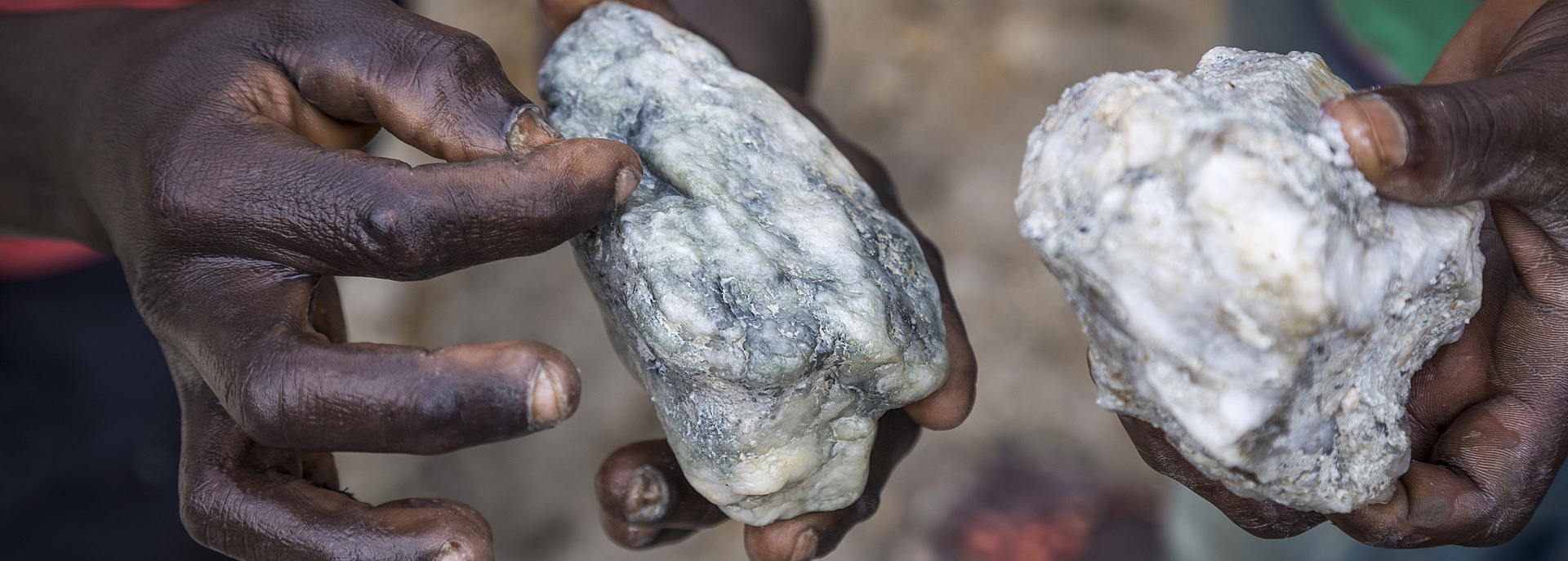
IMPACT on Tin, Tungsten, Tantalum
In 2005, IMPACT brought its expertise on the diamond supply chain to global efforts to end the illicit trade of the 3Ts (tin, tungsten, and tantalum). We began long-term collaborations and partnerships with international and regional initiatives to support the formalization of the 3T artisanal mining sector, as well to promote efforts to develop and implement traceability, due diligence, and supply chain transparency for the three minerals.

We Reveal
Our research investigates the drivers of the illicit trade of conflict-prone minerals and highlights recommendations such as formalization of the artisanal mining sector, fiscal reform, harmonization of legislation, and strengthening of internal controls to end smuggling. We provide analysis of certification, traceability, and due diligence, as they apply to the 3T sector. In 2011, we published Taming the Resource Curse: Implementing the ICGLR Certification Mechanism for Conflict-prone Minerals, which outlined a certification mechanism for 3Ts and gold (3TG) based on best practices. The mechanism was approved by all the Heads of State of the ICGLR in the Lusaka Declaration in December 2010.

We Innovate
As part of our work to transform the 3T supply chain, we’ve led efforts to support traceability and due diligence for the minerals, while promoting benefits for the miners, their communities, and the producing countries. Since 2005, we’ve been working in partnership with the ICGLR—which has classified 3Ts as conflict-prone minerals—and have taken significant steps to the curb illicit trade of 3Ts. We advised the ICGLR during the drafting of the Regional Initiative against the Illegal Exploitation of Natural Resources and we are a technical partner supporting their implementation of the initiative’s six tools, which includes the Regional Certification Mechanism and formalization of the artisanal sector. We helped develop the Regional Certification Mechanism and currently provide technical guidance to implement it across ICGLR countries. To assist implementation efforts, we drafted a detailed Certification Manual in coordination with the Organisation for Economic Co-operation and Development’s (OECD) Due Diligence Guidance. We have also supported the drafting of relevant domestic legislation, delivered out sensitization, and provided training to mine site inspectors across Democratic Republic of Congo and Rwanda. In addition, we are assisting the ICGLR as it operationalizes the Regional Database on Mineral Flows, which will provide national and regional authorities, as well as international buyers, with transparent and reliable data on minerals from the Great Lakes. We supported the founding of a regional civil society network, the Great Lakes Region Civil Society Coalition against the Illegal Exploitation of Natural Resources (COSOC-GL), and provided training to support regional civil society organizations in their efforts to end the illicit trade of 3Ts. We further collaborated with COSOC-GL to develop a toolkit for civil society to monitor and report on risks in the 3T and gold supply chain in order to support the private sector in their public reporting. We directly contributed to the development of the OECD Due Diligence Guidance for Responsible Supply Chains of Minerals from Conflict-Affected and High-Risk Areas, advised on the supplement that provides specific guidance for 3Ts, and now promote its implementation in the 3T sector. We provide capacity building and sensitization to policymakers, civil society, and the private sector on their responsibilities with regards to due diligence and international and regional regulations. We also work with stakeholders to develop strategies to improve controls and end illicit trade.

We Engage
We drive dialogue with partners, including policymakers and industry, to implement traceability and due diligence for the 3T supply chain and to ensure benefits reach miners and their communities. We partner with COSOC-GL, a civil society network across the Great Lakes region that is working on ending the illicit trade of natural resources, to bring the voices and concerns of artisanal miners to industry and governments. Together, we engage governments to strengthen their internal controls and encourage the private sector to put in place traceability and due diligence for the entire 3T supply chain. We provide sensitization and open dialogue about the needs of artisanal miners and restrictions they may face when entering the formal economy. We conduct significant outreach in relation to women’s rights, especially their rights to access, control, and benefit from natural resources. We also promote sensitization and raise awareness among consumers about the origins of the minerals and mineral products they purchase.
